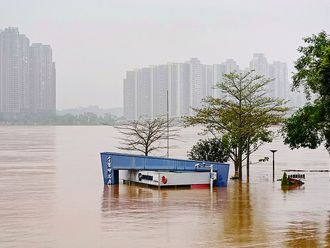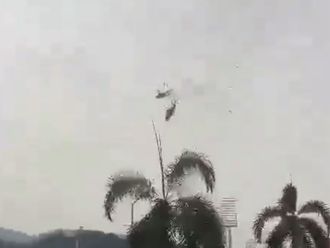They will not search this year nor publicise what they might stumble across in Japan's killing fields.
For decades an area of outstanding natural beauty located at the foot of Mount Fuji has drawn people to admire and relish its scenery but for some it is their last journey.
For the past 30 years, annual searches for bodies of suicide victims have taken place at the end of summer.
These search parties were made up of about 350 firemen, police and volunteers who would retrieve up to 70 bodies annually.
But now officials in Yamanashi prefecture have stopped the searches.
Authorities believe a deadly cycle is at play the publicity the search brought led to more people going to Aokigahara Sea of Trees to end their lives. But the local tourist association wants the searches to continue as they fear potential visitors will be put off by the possibility of coming across rotting corpses.
The dense forest is a refuge from urbanised Japan and is one of the last virgin forests in the country. Its location at the foot of Mount Fuji gives it a religious and cultural significance which makes it a perfect site for those intent on self-sacrifice.
Wild mushrooms grow in abundance, which is why police referred to the grim task of retrieving bodies as "the mushroom harvest".
In a macabre twist, some hikers admit going there with camcorders for the "thrill factor" of finding bodies, making it the perfect Blair Witch-type weekend ramble.
The search has been conducted since 1971 but with the economic downturn currently hitting the country, the deadly harvest has never been more bountiful.
A decade ago the numbers surged from roughly 20 a year to 40 and last year the body count reached more than 70.
The forest has been a place of death for centuries. In times of famine and political upheaval mothers would bring babies they could not feed to there and kill them before committing suicide.
Locals also believe the suicides are a response to spirits beckoning the living to come and join them.












